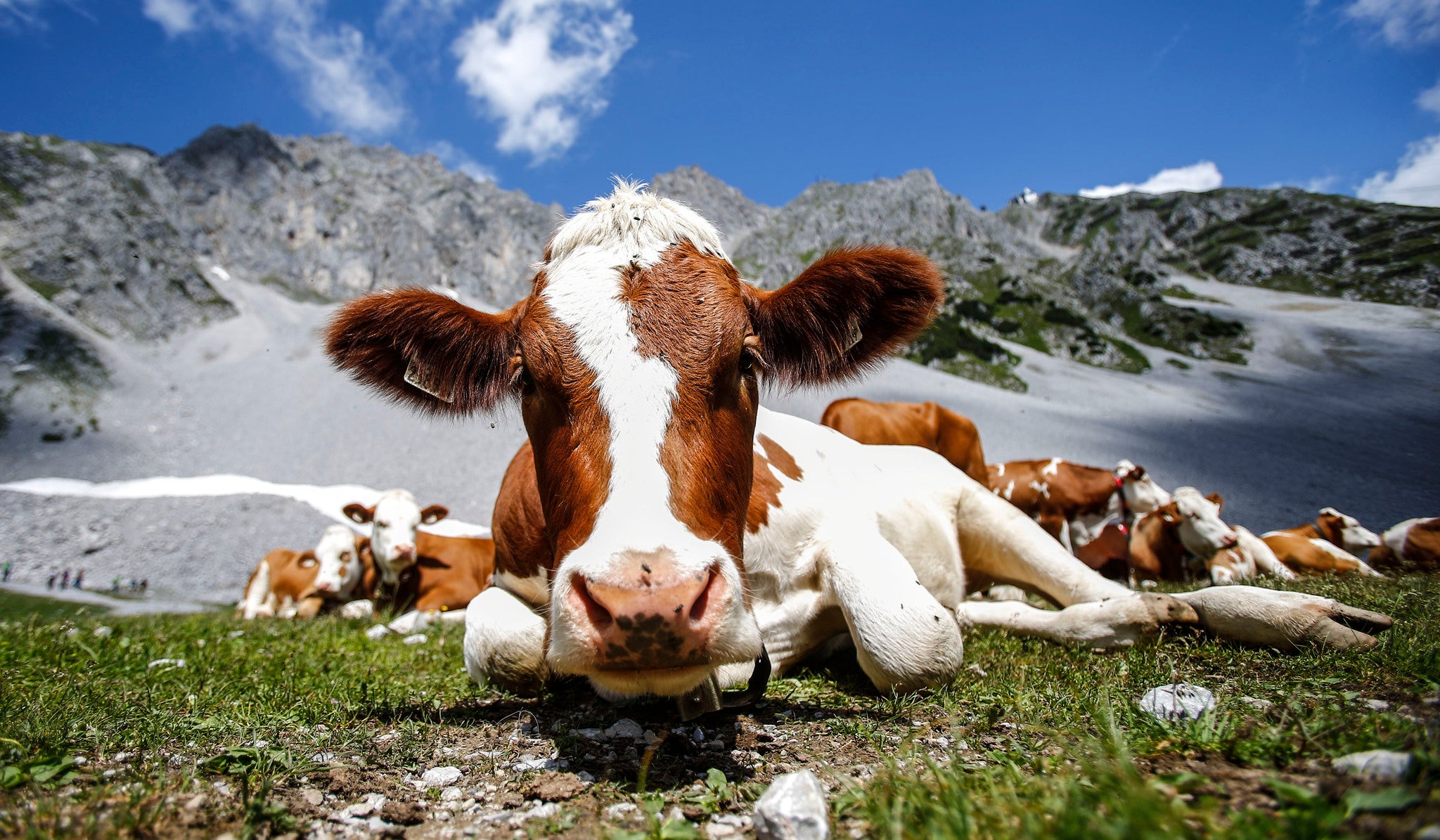Beef is 10 times more damaging to the environment than poultry, dairy, eggs or pork
New study compares resources used by beef cattle with other protein sources

Your support helps us to tell the story
From reproductive rights to climate change to Big Tech, The Independent is on the ground when the story is developing. Whether it's investigating the financials of Elon Musk's pro-Trump PAC or producing our latest documentary, 'The A Word', which shines a light on the American women fighting for reproductive rights, we know how important it is to parse out the facts from the messaging.
At such a critical moment in US history, we need reporters on the ground. Your donation allows us to keep sending journalists to speak to both sides of the story.
The Independent is trusted by Americans across the entire political spectrum. And unlike many other quality news outlets, we choose not to lock Americans out of our reporting and analysis with paywalls. We believe quality journalism should be available to everyone, paid for by those who can afford it.
Your support makes all the difference.A new study has revealed that beef production is 10 times more damaging to the environment than any other type of livestock.
The research, published in the Proceedings of the National Academy of Sciences, found that beef cattle need 28 times more land and 11 times more water than poultry, pork, dairy, or eggs.
“Beef is consistently the least resource-efficient of the five animal categories," said the study’s authors, who noted that beef consumption need to be minimized in the US where it currently accounts for seven per cent of all calories consumed.
While it’s long been known that producing beef is significantly more damaging to the environment than other meats, the authors of the paper say that this the first time the exact differences have been quantified.
The paper’s authors used a decade’s worth of data on land, water, feed and fertilizer use from the US government to reach their conclusions, calculating that for every 10 calories fed to poultry or pork only one calorie was consumed by humans. The ratio for beef was nearly four times higher.
The study also found that beef farming produced significantly more pollution than other protein production methods, with five times the greenhouse gas emissions and six times the reactive nitrogen left over from nitrogen.
Although the study was conducted using US data, researchers from Europe have said that its findings apply here as well, with cattle production dominating the continent's livestock (although dairy plays a larger role).
The main reason for beef's damaging effect is that cattle are inefficient converters of energy. As ruminants they’re able to survive on a wide range of plants and grains but have to consume vast amounts of matter in the process.
Speaking to the BBC, the study’s lead author Professor Gidon Eshel, from Bard College in New York, added that conscientious eaters looking to minimize their damage to the environment didn’t have to cut out meat altogether.
"In fact,” he said, “eliminating beef, and replacing it with relatively efficiency animal-based alternatives such as eggs, can achieve an environmental improvement comparable to switching to plant food source."
Join our commenting forum
Join thought-provoking conversations, follow other Independent readers and see their replies
Comments